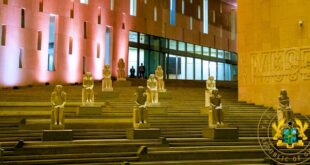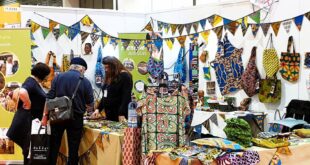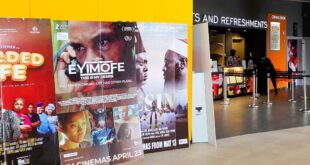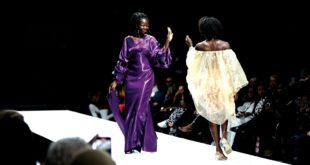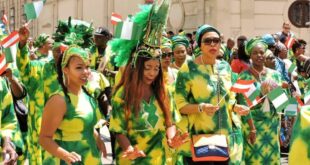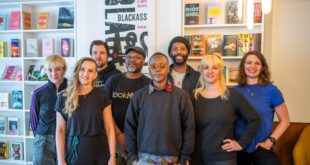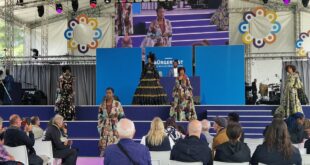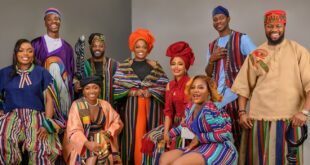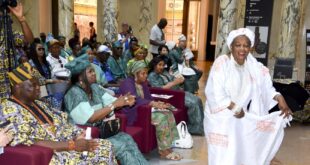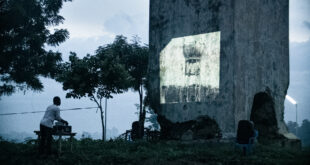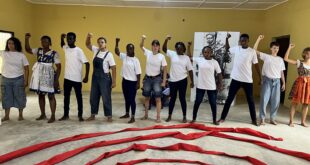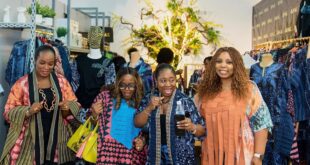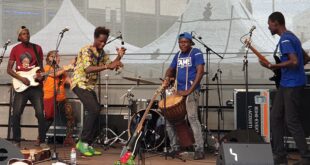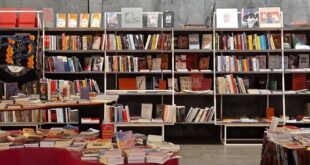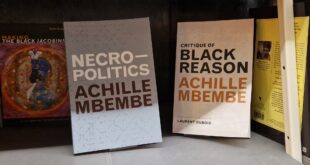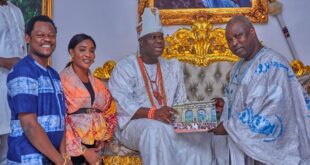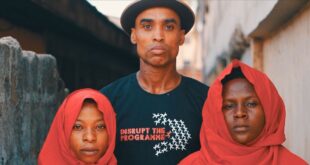The University of Frankfurt’s web-based library on sub-Saharan Africa ilissAfrica (www.ilissafrica.de) offers useful material on African history and culture, with special emphasis on the German colonial history in Africa. In an exclusive interview with our correspondent Muhammed Faisal Garba, the librarian of ilissAfrica, Nadia Cohen, talks about the objectives of the library and how scholars on Africa can profit from it.
What is ilissAfrica all about?
Nadia Cohen: In the first place, we aim to provide information on what literature and other information exists about Africa, south of the Sahara, and where to find them.
Secondly, we also try to provide access to full texts. Either to links to full texts via our website database, advanced search, resource types full texts, full text and media collections, or by copying the full text into our own catalogues, which requires permission from the copyright owner.
Can you briefly explain what an Internet library is?
When presenting ilissAfrica, the first thing people often think is that an Internet library means “e-books” and other full texts. But the definition of a “library” basically is that of a place where you can learn how and where to find the literature you need; that is, knowing the databases and catalogues that are important for your subject, knowing how and where to access the literature (for example through inter-library loan), and also knowing that literature does exist for your subject.
The question of digitizing books is much more difficult than people normally think; you cannot just scan the books you have in your library, as there is copyright.
What is the target group for ilissAfrica?
In the first place, scholars (including students) who work on topics related to Africa. Then, of course, everybody interested in Africa and African Studies, such as journalists, development workers, teachers etc.
What is the range of subject areas covered by ilissAfrica collections?
IlissAfrica covers social sciences, history, philology, ethnology and cultural studies.
Do you have any collaboration with African academics and/or institutions?
We had a panel with a librarian from the University of South Africa about “African Studies on the Web” at the European Conference of African Studies 2009 and we exchanged our experiences concerning digital libraries and repositories.
Moreover, we try to co-operate with universities, institutions and private persons in Africa in order to make archival copies of full text documents available on ilissAfrica. In order to get the right to make a copy of their documents, we send official inquiries in French and English to kindly ask for the permission to copy their documents. The responses we have got so far were mainly positive, for example, from the Université Omar Bongo in Gabon or from the University of Botswana or from the University Cheikh Anta Diop in Senegal.
The aim of this endeavour is to make the scientific research and literature from Africa more visible on the net, and also to secure it in case the servers there encounter problems and the documents get lost.
What has been the feedback like?
We have had a lot of feedback from various sources. For example, from African bibliographers in different American universities, from several embassies in African countries to whom we had sent our press release, and from scholars and professors in private emails. Maybe a small surprise for us was the big reception in Francophone countries, for example on www.bibliofrance.org, a website of Librarians in France, which said: “This portal might become an indispensable reference point for all researchers and specialists of sub-Saharan Africa.”
We can also see from our statistics how many people visit us, among others, from which countries. We are happy to say that so far we have had visits from at least 39 different African countries (the top three so far being from South Africa, Cameroon and Tanzania, and on the fourth position, a Francophone country, Senegal).
What is the vision for the years ahead?
We plan to integrate more Africa-related catalogues and databases into our search and to intensify public relations work, especially in Africa. IlissAfrica is offered in German, English and French. We always like to point out our “Open Access Guide” which lists projects offering cheap or free access to databases and e-journals for researchers and institutions based in Africa (www.ilissafrica.de/en/helpANDtools.html).
 THE AFRICAN COURIER. Reporting Africa and its Diaspora! The African Courier is an international magazine published in Germany to report on Africa and the Diaspora African experience. The first issue of the bimonthly magazine appeared on the newsstands on 15 February 1998. The African Courier is a communication forum for European-African political, economic and cultural exchanges, and a voice for Africa in Europe.
THE AFRICAN COURIER. Reporting Africa and its Diaspora! The African Courier is an international magazine published in Germany to report on Africa and the Diaspora African experience. The first issue of the bimonthly magazine appeared on the newsstands on 15 February 1998. The African Courier is a communication forum for European-African political, economic and cultural exchanges, and a voice for Africa in Europe.


